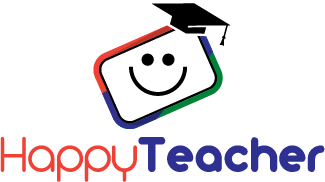
Course Description
This comprehensive, interdisciplinary graduate-level course dives deep into the world of artificial intelligence (AI), with a specific focus on the use of generational conversational AI in educational contexts. Students will explore the historical and theoretical foundations of AI, analyze the ethical challenges presented by AI in education including data privacy, algorithm bias, fairness, and the potential misuse in cheating. Students will then investigate the creative possibilities unlocked by AI integration in the classroom. The course provides a platform to learn, evaluate, and apply generative AI in various aspects of education, such as crafting resourceful lesson plans, innovative assessments, personalized feedback, and differentiated instruction. Hands-on activities and assignments will give students the opportunity to apply AI to the creation of resourceful lesson plans and teaching materials that inspire and engage.
The course progresses to explore how AI can revolutionize assessments and feedback in education, making them more personalized, efficient, and effective. This will involve both a theoretical understanding and practical application of AI in assessments to create a more inclusive and effective learning environment. The final segment of the course focuses on teaching your own students how to use critical thinking and problem solving to leverage AI tools to adapt to the transformative potential of AI.
Upon completion of this course, the participant will be able to:
- Describe the history, evolution, and key principles of AI
- Formulate a thorough ethical analysis of AI use in education, with an emphasis on data privacy, fairness, and accessibility
- Design and deliver lessons using generative AI to monitor student progress, collect formative and summative data, and analyze outcomes to inform instructional decisions
- Develop, design, and implement innovative learning strategies and assessments using AI to create differentiated instruction strategies and promote personalized learning
- Teach students about the principles and responsible use of generative AI
Course Instructors
M.Ed. Leadership
Does not qualify for TEACH grant
This MA program does not include licensure. Check with your state on licensing requirements
| Course Number | Semester Credits | Course Title(s) |
|---|---|---|
| Happy Teacher Courses | 12 | Effective Classroom Management AI for Educators Cultivating Kindness Trauma-Informed Education *Other Happy Teacher courses may be substituted |
| EDU 512 | 3 | Educational Research Methods |
| EDU 531 | 3 | Teaching & Working in a Multicultural Setting |
| EDU 590 | 3 | Capstone Seminar- Early Childhood |
| ECE 523 | 3 | Health, Safety, Nutrition in Early Childhood |
| ECE 551 | 3 | Introduction to Early Childhood |
| ECE 552 | 3 | Observation & Assessment in Early Education |
| ECE 556 | 3 | Admin/ Supervision Early Childhood |
| ECE 557 | 3 | Methods/Curriculum Early Education |


